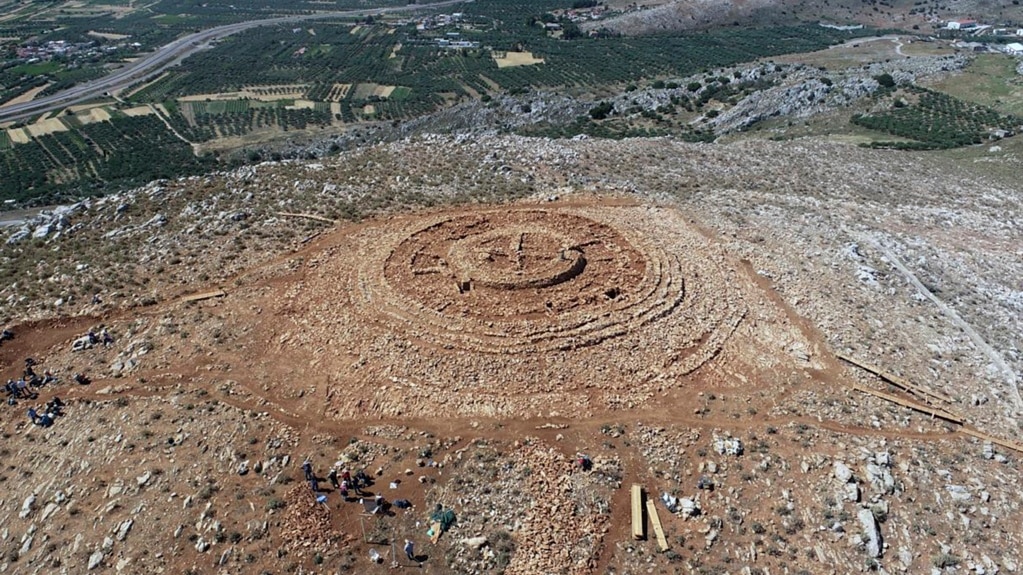Greek officials recently announced the discovery of a 4,000-year-old-stone building on the island of Crete. The historical find could block progress on a big airport project.
Greece’s Culture Ministry said recently that the structure is unlike any other from Crete’s ancient Minoan civilization. The Culture Ministry described the find as “extremely interesting.”
Crete’s Minoan civilization is famous for its complex palaces, colorful art, and mysterious writing system.
The whole structure is about 1,800-square-meters in area. When seen from above, the structure looks like a big automobile wheel.
Archaeologists found it during a recent dig.
The structure is in an area chosen as the site for a new radar station. The radar station is to serve a new airport being built near the town of Kastelli. The new airport is designed to serve up to 18 million travelers each year. Officials say it will open in 2027.
Archaeologists continue to dig at the site and are studying the remains. They do not yet know what the hilltop structure was for.
Experts say it could have a traditional or religious purpose.
Surrounded by eight stone walls as tall as 1.7 meters high, the inner structure is divided into smaller, connected spaces.
The ministry’s statement said the structure did not appear to have been a place where people lived.
The finds from inside it include a large quantity of animal bones.
The statement also said the size, design, and building quality required labor, specialized knowledge, and a strong central administration. The structure was likely a communal building that stood out in the entire area, officials said.
Culture Minister Lina Mendoni promised that the find would be preserved while a different site would be found for the radar station.
“We all understand the value and importance of cultural heritage," she said.
“It’s possible to go ahead with the airport,” she said, and protect the ancient objects as well.
The ministry said the building was probably made around the time Crete’s first palaces were being built — including at Knossos and Phaistos.
Greece’s rich cultural history often results in conflicts of interest during building projects.
At the end of the last century, remains of an ancient hilltop settlement were dug up and then destroyed during building work for Athens International Airport.
So far, at least another 35 archaeological sites have been uncovered during work on the new Kastelli airport and its road connections, the ministry said.
I’m John Russell.

